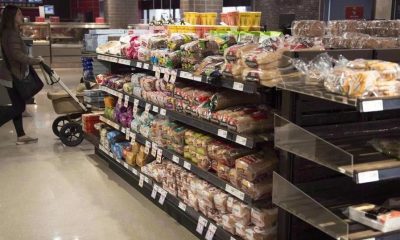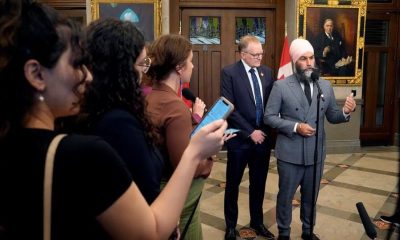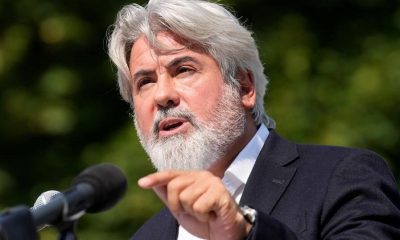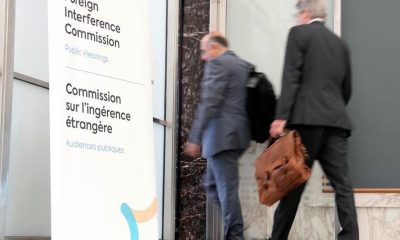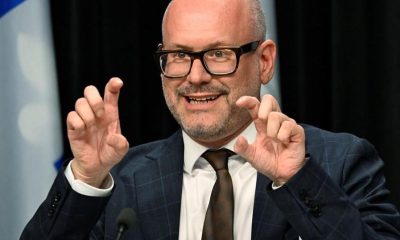President Donald Trump said some states “aren’t going fast enough” to reopen, even as he acknowledged that the nation’s death count would likely be higher than he had previously predicted. Trump accused Beijing of attempting a cover up and promised a conclusive report on the pandemic’s origins.
The worst-hit countries in Europe moved to ease curbs as cases slowed. Italy began to reopen its economy after two months, but the premier was criticized for being too cautious, and Spain started to relax its lockdown regime after weeks of confinement.
Factory output across Asia and Europe slumped and a recovery will probably be “frustratingly slow,” IHS Markit warned. Hong Kong’s downturn is now the worst on record, extending the first recession seen in a decade.
Virus Tracker: global cases pass 3.5 million; deaths top 247,000Japan extends emergency, HK may soon reopen cinemas, gymsRussia has more than 10,000 new infections for a second dayNew Zealand had no new cases for the first time since MarchSingapore’s battle with virus “not even at the halfway mark”China trade deal turns into potential liability for Trump
Subscribe to a daily update on the virus from Bloomberg’s Prognosis team here. Click VRUS on the terminal for news and data on the coronavirus.
France, Germany to Coordinate Future Stimulus (6:30 a.m. NY)
Germany and France have asked economists to look at how the two countries can coordinate fiscal stimulus to reboot their economies once the health crisis is over. French Finance Minister Bruno Le Maire and German Economy Minister Peter Altmaier have asked a committee of experts to advise on how to coordinate measures to ensure the biggest possible economic impact. Le Maire said France won’t set out its plans for stimulus to reboot the economy until September.
Carson Block Says Stock Valuations Make ‘No Sense’ (6 a.m. NY)
Carson Block is predicting a plunge in stocks after they roared back from the coronavirus sell-off in March. “The direction has to be sharply downward,” the renowned short seller and founder of Muddy Waters Capital said in a phone interview. Block finds it hard to believe that equities are trading at their current valuations even though demand has been “crushed” by the pandemic and isn’t likely to recover anytime soon. “It makes no sense,” he said.
“What caused the pandemic is not a policy failure,” Block said. But the fallout will be “much worse than it should be” due to “political dysfunction,” as was the case for the Iraq war and the global financial crisis, he said. Block, who’s best known as an activist short seller, has been making some short investments that don’t fit his typical approach of rooting out financial fraud. He said he’s betting against a cruise company that he declined to identify.
Belgian Virologists Optimistic (5:52 p.m. HK)
Health officials in Belgium said that the basic reproduction number, the average number of secondary infections produced by a typical case of an infection, has further fallen to 0.6 in the country from 0.8 in the prior week and from between 2 and 3 in the first weeks of the epidemic.
New hospital admissions fell to 59 from 77 the previous day and at 3,044 beds, the total occupation in Belgian hospitals has fallen by almost 50% from the peak in the first full week of April, providing further evidence for the weakening of the coronavirus outbreak.
Japan’s Abe Extends Emergency Through May (5:32 p.m. HK)
Japan extended its nationwide state of emergency until May 31, with Prime Minister Shinzo Abe saying the measures need more time to reduce infection rates. Abe said experts would re-examine the situation around May 14 and that the government was prepared to remove some areas from the state of emergency early, if possible.
Abe had indicated last week that he would probably prolong the measures beyond the original May 6 end date. “Japan is starting to see some positive results,” he said in televised remarks. “But with a considerable number of people infected at this point, the decline in infections is by no means at a sufficient level.”
Polish Government Wavers on Lockdown Ballot (5:26 p.m. HK)
A top Polish government official signaled the country’s May 10 presidential election may be delayed as criticism intensifies over efforts to hold the vote during the lockdown. International monitors have said the government’s push to go ahead with an untested vote-by-mail is endangering the ballot’s integrity, while opposition parties have effectively ceased campaigning during stay-at-home measures. The outgoing head of the Supreme Court condemned the process as a farce.
Deputy Premier Jacek Sasin blamed the opposition-controlled Senate for preventing the vote from going ahead as planned. He said the “constitutional time frame” allowed it to be postponed until May 23, signaling a shift in the government’s insistence on holding the first round on Sunday.
Spain Deaths, Cases Continue to Slow (5:20 p.m. HK)
The number of fatalities rose by 164 to 25,428 in the 24 hours through Monday, the same as Sunday, according to Health Ministry data. Infections rose by 356 to 218,011 after the previous day’s gain of 838. The total number of cases was adjusted to reflect changes in data for the Madrid region.
Prime Minister Pedro Sanchez said Saturday that the pandemic is under control, allowing the government to gradually phase out a strict lockdown introduced in March. First steps include lifting some restrictions on Monday, with more easing in some areas than others based on local data. Harder-hit places such as Madrid and Barcelona, the two largest cities, are likely to be the last to see the end of the confinement.
Travelers Put Indonesia at Risk of Second Wave (4:55 p.m. HK)
President Joko Widodo ordered officials to step up surveillance of workers returning from foreign countries, those coming back from religious gatherings and areas where industries are still operational. People who returned to their hometowns and villages from large cities before an official ban last month also pose a threat of spreading the virus, he said.
While 89,000 migrant workers had already returned to the country since the outbreak of the pandemic, another 16,000 people may return in the coming days, Jokowi said. “This must be handled really well on the ground so that a second wave does not emerge,” he told a cabinet meeting. Both Singapore and Thailand have been caught out by infections among foreign workers, who come from other parts of the region to work on building sites, in low-wage industries and as domestic labor.
Norwegian Air Owners Approve Crisis Plan (4:48 p.m. HK)
Norwegian Air Shuttle ASA’s shareholders approved a restructuring plan that will qualify the struggling carrier for state aid and keep it afloat in the coming months. After the company clinched a deal with creditors following intense talks through the weekend, shareholders approved the plan at an extraordinary general meeting on Monday, according to a statement.
Earlier, Air France-KLM won European Union approval for a 7 billion-euro ($7.65 billion) French aid package consisting of a state guarantee and a subordinated shareholder loan as airline revenue collapses. And Deutsche Lufthansa AG expects to finalize talks with the German government on an aid package “soon,” the company told employees in a letter.
Most EU Countries Have Passed Initial Peak (4:47 p.m. HK)
Most EU countries have probably seen a peak in the initial wave of infections but governments shouldn’t drop their guard, according to Andrea Ammon, Director of the European Centre for Disease Prevention and Control. “Overall, the non-pharmaceutical interventions, such as stay-at-home policies and physical distancing measures have reduced the transmission and the 14-day incidents by 45% compared to April 8,” she told the European Parliament’s environment and health committee on Monday.
Hong Kong Has Worst Quarter on Record (4:40 p.m. HK)
The city’s economy contracted 8.9% in the first quarter from year-ago levels, according to advance government data. The decline surpasses the previous record of -8.3% in the third quarter of 1998 and a 7.8% contraction in the first quarter of 2009, the two worst quarterly readings in data back to 1974, according to the Census and Statistics Department Hong Kong.
The latest decline also marks the third straight quarterly contraction for Hong Kong, the longest such stretch since the aftermath of the global financial crisis in 2009.
Russia New Cases Top 10,000 for Second Day (4:20 p.m. HK)
Russia added 10,581 new coronavirus cases over the past day, taking total infections in the country to 145,268. Monday’s net increase is in line with the 10,633 new cases reported on Sunday, though the 7.9% increase in total cases is slowest gain since Friday.
J. Crew Files Bankruptcy (4:05 p.m. HK)
J. Crew Group Inc. filed for bankruptcy, unable to revive flagging sales of its preppy clothing line amid the pandemic and crushed by debt rooted in a long-ago leveraged buyout. The retail chain had obligations of $1.68 billion as of Feb. 1, according to a company statement. The bankruptcy petition was submitted to the U.S. Eastern District of Virginia.
Factory Output Slumps in Europe and Asia (4 p.m. HK)
European manufacturing will take a long time to overcome the damage caused by the coronavirus, after suffering an unprecedented slump in April. In its monthly report on factories, IHS Markit said the recovery from shutdowns will be “frustratingly slow.” With economies still not running at full speed for some time, that means businesses and jobs will remain under threat.
Markit’s index showed confidence dropped to a record low in April, and job cuts were the sharpest since 2009. The headline measure of euro-area activity fell to 33.4 — the lowest since the series began in 1997 — from 44.5 in March. A measure of output plunged to just 18.1, far below the key 50 level. There were also record-low readings for France and Italy, while those in Spain and Germany were at the weakest in about 11 years.
Factory output across several Asian countries has also slumped to record lows, signaling a deeper contraction in the world’s manufacturing hub even as China begins restarting some operations.
China Has Questions to Answer, U.K. Says (3:46 p.m. HK)
China has questions to answer about how quickly it made the world aware of the extent of the coronavirus crisis, U.K. Defense Secretary Ben Wallace said. “China needs to be open and transparent about what it learned and its shortcomings, but also its successes,” he said.
The comments come hours after U.S. President Donald Trump said he has little doubt that Beijing misled the world about the scale and risk of the disease before it became a global pandemic. Earlier, Secretary of State Michael Pompeo said “enormous evidence” shows the Covid-19 outbreak began in a laboratory in the central Chinese city of Wuhan, without providing evidence to support his claims.
U.K. Weighs Socially-Distant Return to Work (3:40 p.m. HK)
Companies looking to resume operations after the U.K. lockdown is relaxed are set to be told to stagger shifts, enforce social distancing with tape on floors, and avoid sharing pens, people familiar with the matter said. The government has written seven draft guidance papers covering different business environments to help people working in outdoor jobs, factories and in vehicles, among other scenarios.
The guidance is designed to help get swathes of the economy that have been shuttered by the pandemic to begin operating again as and when ministers ease restrictions requiring people to largely stay at home. The U.K. remains in lockdown until at least Thursday, when Prime Minister Boris Johnson is due to review the latest scientific advice on how the virus is spreading.
Blackstone’s Soho China Investment Talks Stall (3:39 p.m. HK)
Blackstone Group Inc.’s talks about a potential investment in Chinese property developer Soho China Ltd. have stalled, people with knowledge of the matter said. The private equity firm’s discussions are no longer progressing after the coronavirus outbreak made it difficult to assess the developer’s business outlook, said the people, who asked not to be identified as the information is private. Recent turmoil in the debt market introduced concerns about arranging financing for a deal, the people said.
Singapore Outlines Criteria for Reopening (3:26 p.m. HK)
Singapore would consider lifting its partial lockdown measures if certain criteria are fulfilled, including reduced transmissions of the virus in the wider community as well as among migrant workers living in dormitories, Minister of Health Gan Kim Yong said on Monday.
The Ministry of Health confirmed an additional 573 virus cases as of noon local time Monday, the majority of whom are work permit holders residing in foreign worker dormitories. Five cases are Singaporeans or permanent residents.
“We need to be assured that community transmission locally is stemmed, or very low,” Gan said in remarks delivered in parliament. “Community cases should ideally fall to zero or single-digits daily, with very low numbers of unlinked cases, not just for one day, but sustained over a period of time.”
Germany’s New Cases at Five-Week Low (2:10 p.m. HK)
Germany reported the lowest number of new infections and deaths since at least March 30, as the country continues an easing of curbs on public life and allows the economy to slowly restart.
There were 697 new cases in Germany in the 24 hours since Sunday, compared with 890 a day earlier, according to data from Johns Hopkins University. Fatalities rose by 54 to 6,866, compared with an increase of 76 the day before. Confirmed cases now total 165,664.
Thai Cases Jump on Detention-Center Infections (1 p.m. HK)
Thailand reported the highest number of new coronavirus infections in over a week after finding more cases at an immigration detention center. Some 18 people were found to have the pathogen at the center in southern Songkhla province, a spokesman for the Covid-19 center said in Bangkok.
N.Z. to Discuss ‘Travel Bubble’ With Australia (1 p.m. HK)
New Zealand Prime Minister Jacinda Ardern will join an Australian government cabinet meeting on Tuesday to discuss, among other issues, the eventual re-opening of borders between the two nations.
Ardern accepted an invitation from Australian counterpart Scott Morrison to join his national cabinet meeting via video link tomorrow, she said. They would discuss various issues “including the creation of a trans-Tasman travel bubble.”
Hong Kong to Ease Gathering Limit: Cable TV (10:58 a.m. HK)
Hong Kong plans to relax social-distancing measures to allow public gatherings of no more than eight people, broadcaster Cable TV reported, citing unidentified people.
The government may allow cinemas, beauty parlors and gyms to reopen this week, according to the report. Existing measures are set to expire on May 7. Hong Kong hasn’t found a local coronavirus case in 14 days.
New Zealand Records Zero New Cases (10:48 a.m. HK)
New Zealand recorded no new coronavirus cases, raising hopes it can further relax lockdown restrictions. The Ministry of Health reported zero new infections for the first time since the lockdown began at midnight on March 25. The nation has 1,487 confirmed or probable cases, of which 86% are defined as recovered. There have been 20 deaths.
Trump Says China Made ‘Horrible Mistake’ (9:11 a.m. HK)
President Donald Trump said he has little doubt that China misled the world about the scale and risk of the coronavirus outbreak and then sought to cover it up as the disease became a global pandemic.
“I think they made a very horrible mistake,” Trump said during an interview Sunday night on Fox News. “They tried to cover it.” He alluded to additional information he said will be coming out soon to back up his claims, which China has rejected.
Trump, asked if he will use tariffs to punish China for the coronavirus pandemic, said they would be “the ultimate punishment.” “Tariffs at a minimum are the greatest negotiating tool,” Trump said at the Fox News town hall. He also said a trade deal with China requires the country to purchase U.S. goods and if they don’t, the U.S. will terminate the agreement.
Trump Says More Help Is Coming (7:46 a.m. HK)
President Donald Trump promised more federal assistance is coming for Americans put out of work by the outbreak and vowed to press ahead with reopening the economy. He said he won’t agree to pass further stimulus measures without a payroll tax cut.
In a town hall event hosted by Fox News on Sunday, Trump revised upward the number of Americans he expects to die from the virus to “anywhere between 75, 80 to 100,000.” He had said at the beginning of April he hoped deaths would total less than 60,000. The number of U.S. dead so far is more than 67,000.
<p class="canvas-atom canvas-text Mb(1.0em) Mb(0)–sm Mt(0.8em)–sm" type="text" content="For more articles like this, please visit us at bloomberg.com” data-reactid=”102″>For more articles like this, please visit us at bloomberg.com
<p class="canvas-atom canvas-text Mb(1.0em) Mb(0)–sm Mt(0.8em)–sm" type="text" content="Subscribe now to stay ahead with the most trusted business news source.” data-reactid=”103″>Subscribe now to stay ahead with the most trusted business news source.
©2020 Bloomberg L.P.




